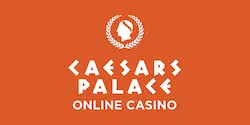Pennsylvania Online Casinos
Online gambling is legal in Pennsylvania thanks to a wide-ranging gaming expansion bill passed in 2017. The first Pennsylvania online casinos opened in July 2019 with slots, table games, video poker, and more on offer.
Pennsylvania gambling sites accept players 21 or older and physically located within state lines. Some of the nation’s most prominent operators offer online gambling in Pennsylvania, including Rivers, Borgata, MGM, and more. In short, Pennsylvania online gambling is safe, legal, and well-regulated.
Our complete guide to online casinos in Pennsylvania provides everything players need to know about deposit bonuses, mobile casino apps, state law, and much more.
Legal Pennsylvania Casino Sites
 $500 Deposit BonusBetRivers Casino Bonus Code: BUSA
Gambling problem? Call or TEXT 1-800-GAMBLER. 21+ and present in DE, MI, NJ, PA, or WV. Welcome bonus for new customers only. Playthrough requirements and other restrictions apply. Visit BetRivers for full T&Cs.
$500 Deposit BonusBetRivers Casino Bonus Code: BUSA
Gambling problem? Call or TEXT 1-800-GAMBLER. 21+ and present in DE, MI, NJ, PA, or WV. Welcome bonus for new customers only. Playthrough requirements and other restrictions apply. Visit BetRivers for full T&Cs.
 $25 On Signup + $1000 Deposit BonusBetMGM Casino Bonus Code: BUSABONUS
GAMBLING PROBLEM? Call 1-800-GAMBLER (NJ, PA, WV) or call 1-800-270-7117 (MI) for confidential help. Must be 21+. MI, NJ, PA, and WV only. Please gamble responsibly. Visit BetMGM.com for terms and conditions. All promotions are subject to qualification and eligibility requirements. Rewards issued as non-withdrawable site credit unless otherwise provided in the applicable terms. Rewards subject to expiry.
$25 On Signup + $1000 Deposit BonusBetMGM Casino Bonus Code: BUSABONUS
GAMBLING PROBLEM? Call 1-800-GAMBLER (NJ, PA, WV) or call 1-800-270-7117 (MI) for confidential help. Must be 21+. MI, NJ, PA, and WV only. Please gamble responsibly. Visit BetMGM.com for terms and conditions. All promotions are subject to qualification and eligibility requirements. Rewards issued as non-withdrawable site credit unless otherwise provided in the applicable terms. Rewards subject to expiry.
 $10 + $1000 Deposit BonusCaesars Palace Online Casino Promo Code: BUSA10
Must be 21+ and physically present in MI, NJ, PA and WV only. New users and first deposit only. Wager $25+ to receive 2,500 Reward Credits. Max deposit match bonus of $1,000. Minimum wagering within 7 days required to unlock bonuses. NJ bonuses apply to slot play only. Full terms and wagering requirements at Caesarspalaceonline.com/promos. Void where prohibited. Know When To Stop Before You Start.® Gambling Problem? MI: Call the Michigan Problem Gambling Helpline at 1-800-270-7117; NJ, WV, PA (Affiliated with Harrah’s Philadelphia): If you or someone you know has a gambling problem, crisis counseling and referral services can be accessed by calling 1-800-GAMBLER (1-800-426-2537) or WV: Visit 1800gambler.net; ON: Visit connexontario.ca or call 1-866-531-2600 or text CONNEX to 247247. ©2023, Caesars Entertainment
$10 + $1000 Deposit BonusCaesars Palace Online Casino Promo Code: BUSA10
Must be 21+ and physically present in MI, NJ, PA and WV only. New users and first deposit only. Wager $25+ to receive 2,500 Reward Credits. Max deposit match bonus of $1,000. Minimum wagering within 7 days required to unlock bonuses. NJ bonuses apply to slot play only. Full terms and wagering requirements at Caesarspalaceonline.com/promos. Void where prohibited. Know When To Stop Before You Start.® Gambling Problem? MI: Call the Michigan Problem Gambling Helpline at 1-800-270-7117; NJ, WV, PA (Affiliated with Harrah’s Philadelphia): If you or someone you know has a gambling problem, crisis counseling and referral services can be accessed by calling 1-800-GAMBLER (1-800-426-2537) or WV: Visit 1800gambler.net; ON: Visit connexontario.ca or call 1-866-531-2600 or text CONNEX to 247247. ©2023, Caesars Entertainment
 500 Bonus Spins + $1000 Loss RefundFanDuel Casino Promo Code: Not Needed
21+ and present in CT, NJ, PA, MI or WV. Bonus issued as non-withdrawable casino credits. Gambling Problem? Call 1-800-GAMBLER or visit FanDuel.com/RG (NJ, PA, MI), or visit www.1800gambler.net (WV) or https://ccpg.org/chat (CT).
500 Bonus Spins + $1000 Loss RefundFanDuel Casino Promo Code: Not Needed
21+ and present in CT, NJ, PA, MI or WV. Bonus issued as non-withdrawable casino credits. Gambling Problem? Call 1-800-GAMBLER or visit FanDuel.com/RG (NJ, PA, MI), or visit www.1800gambler.net (WV) or https://ccpg.org/chat (CT).
 $20 On Signup + $1000 Deposit BonusBorgata Casino Bonus Code: BUSABONUS
GAMBLING PROBLEM? Call 1-800-GAMBLER. Must be 21+. NJ and PA only. Please gamble responsibly. Visit borgataonline.com for terms and conditions. All promotions are subject to qualification and eligibility requirements. Rewards issued as non-withdrawable site credit unless otherwise provided in the applicable terms. Rewards subject to expiry.
$20 On Signup + $1000 Deposit BonusBorgata Casino Bonus Code: BUSABONUS
GAMBLING PROBLEM? Call 1-800-GAMBLER. Must be 21+. NJ and PA only. Please gamble responsibly. Visit borgataonline.com for terms and conditions. All promotions are subject to qualification and eligibility requirements. Rewards issued as non-withdrawable site credit unless otherwise provided in the applicable terms. Rewards subject to expiry.
 $1000 BonusBet365 Casino Bonus Code: BETUSAMust be 21+ and present in NJ or PA. Gambling problem? Call or Text 1-800-GAMBLER. New customers only. Deposit between $10 and $1000. Bonus will be matched to qualifying deposit. Value of deposit plus bonus must be wagered 20 times. Time limits and T&Cs apply.
$1000 BonusBet365 Casino Bonus Code: BETUSAMust be 21+ and present in NJ or PA. Gambling problem? Call or Text 1-800-GAMBLER. New customers only. Deposit between $10 and $1000. Bonus will be matched to qualifying deposit. Value of deposit plus bonus must be wagered 20 times. Time limits and T&Cs apply.21+ and present in PA. Gambling Problem? Call 1-800-GAMBLER.
Pennsylvania Online Casino Apps
The Pennsylvania Gaming Control Board (PGCB) is responsible for issuing licenses, ensuring a safe environment for consumers, and promoting responsible gambling habits. To date, more than a dozen online casinos have received PGCB approval to offer real money gambling.
Gamblers can identify legal PA gambling sites by the PGCB logo displayed on their home pages and mobile apps. Additionally, players can verify the authenticity of any gaming license by visiting the PGCB website for a complete list of licensed operators.
All licensed online casinos are safe and fair, but a few stand out above the rest in terms of game variety, deposit bonuses, and other promotional offerings.
- BetRivers Casino
- Caesars Palace Online Casino
- Golden Nugget Online Casino
- BetMGM Casino
- Horseshoe Online Casino
- Bet365 Casino
- FanDuel Casino
- DraftKings Casino
- Borgata Casino
- Stardust Casino
- Bally Casino
- Betway Casino
- BetParx Casino
- Hollywood Casino
- Tropicana Casino
- Fanatics Casino
- Play Live! Casino
- Wind Creek Casino
- PokerStars Casino
Pennsylvania Online Casino Bonuses
 $25 On Signup + $1000 Deposit BonusBetMGM Casino Bonus Code: BUSABONUS
GAMBLING PROBLEM? Call 1-800-GAMBLER (NJ, PA, WV) or call 1-800-270-7117 (MI) for confidential help. Must be 21+. MI, NJ, PA, and WV only. Please gamble responsibly. Visit BetMGM.com for terms and conditions. All promotions are subject to qualification and eligibility requirements. Rewards issued as non-withdrawable site credit unless otherwise provided in the applicable terms. Rewards subject to expiry.
$25 On Signup + $1000 Deposit BonusBetMGM Casino Bonus Code: BUSABONUS
GAMBLING PROBLEM? Call 1-800-GAMBLER (NJ, PA, WV) or call 1-800-270-7117 (MI) for confidential help. Must be 21+. MI, NJ, PA, and WV only. Please gamble responsibly. Visit BetMGM.com for terms and conditions. All promotions are subject to qualification and eligibility requirements. Rewards issued as non-withdrawable site credit unless otherwise provided in the applicable terms. Rewards subject to expiry.
Promotions and bonuses feature prominently in the marketing efforts of Pennsylvania online casinos vying for business in an increasingly competitive market.
Below is an overview of the best Pennsylvania casino bonuses and their promo codes if necessary. In most cases, readers can follow any of the links provided below to claim the associated welcome bonus.
| Online Casino | Promo Code | Welcome Bonus |
|---|---|---|
| Bet365 Casino Pennsylvania Bonus Code | BETUSA | 100% up to $1,000 |
| BetMGM Casino Pennsylvania Bonus Code | BUSABONUS | $25 No-Deposit Bonus + 100% up to $1,000 |
| FanDuel Casino Pennsylvania Promo Code | Not Needed | Up to $1,000 Refund on First Day's Net Losses + 350 Bonus Spins |
| Borgata Casino Pennsylvania Bonus Code | BUSABONUS | $20 No-Deposit Bonus + 100% up to $1,000 |
| BetRivers Casino Pennsylvania Bonus Code | BUSA | 100% up to $250 on First Deposit |
| Caesars Casino Pennsylvania Promo Code | BUSA10 | $10 Instant Bonus + 100% up to $1,000 |
Licensed PA online casino sites offer customers a variety of welcome bonuses and ongoing promotions to attract new users and secure the loyalty of current players. Some of the most common types of bonuses Pennsylvania online casinos offer include the following:
- No-Deposit Casino Bonuses: A no-deposit bonus rewards players for signing up and does not require a deposit. Players simply sign up for accounts, verify their identities, and receive bonus funds in their accounts. In some cases, players cannot withdraw the bonus money but may cash out any winnings after making a first deposit.
- Casino Deposit Bonuses: The classic deposit bonus is a staple in online gambling. The player signs up for an account, makes a deposit, and receives bonus funds in return. Casinos usually offer such bonuses as a percentage of the player’s first deposit. For example, a 100% bonus matches the player’s first deposit with an equal amount in site credit. Deposit bonuses are typically subject to wagering requirements, ranging from 1x to 20x or higher.
- Free Spins: Some casino promotions offer customers free spins on specific slots for customers either as a part of a welcome bonus or as a short-term promotion for existing players.
- Leaderboard Challenges: Leaderboard challenges offer bonuses or cash to the customers who place the most wagers within a set time frame, such as the next week. The most active players move up the leaderboard, and the winners receive bonuses, cash, or other perks at the end of the challenge.
- Gambling Reload Bonuses: Reload bonuses work in the same manner as new player deposit bonuses but are open to existing customers.
- Cash Back Refund Offers: This type of bonus offers customers a chance to try the casino by promising to refund their losses if they are down money after a set amount of time. For example, a casino may offer to refund each player’s first deposit up to $500 if they are down money after their first 24 hours.
- Refer-a-Friend Casino Bonuses: PA online casinos understand the power of word-of-mouth advertising, and most are willing to pay good money to customers who refer their friends. Most online casinos provide a feature in which customers can input the e-mail addresses of their friends to send invitations. Referral bonuses are usually in the range of $25 to $50 and sometimes give the referred friend a bonus as well.
It is critical for players to read the terms and conditions of every bonus offer before they accept it. All Pennsylvania casino bonuses come with certain terms and conditions that players must meet to claim the bonus and cash out winnings.
- Cashable Vs. Non-Cashable Casino Bonuses: Most PA casino bonuses are non-cashable, meaning players may not withdraw the bonus money but are free to cash out anything they win with it. In other words, most casino bonuses are site credit. Occasionally, players will find a cashable casino bonus in which the original bonus and winnings are withdrawable.
- Casino Bonus Rollover Requirements: Also known as wagering requirements, rollover refers to how much money players must wager to clear the bonus and winnings for withdrawal. For example, a 10x rollover means customers must place a total sum of wagers equal to ten times the bonus amount before withdrawing.
- Eligible Casino Games to Clear the Bonus: One easily missed term attached to most bonuses is the list of eligible games that count towards meeting the rollover requirements. For example, wagers on slots usually count 100% towards the requirements, while bets on table games such as blackjack may count as little as 10% towards the rollover.
- Location Matters: PA gambling law prohibits online casinos from offering gambling bonuses to customers not physically located within state lines, including no-deposit bonuses.
Popular Online Casinos in Pennsylvania
Monthly revenue reports from the PA Gaming Control Board provide the most unbiased metric there is for determining the most popular online casinos: how much money players wager at each gambling site.
But first, a couple of caveats. Monthly revenue numbers are bound to change month to month due to the natural ebb and flow of the PA online gambling industry. The best Pennsylvania gambling sites tend to hold their positions near the top of the hierarchy, but operators in the middle of the pack change position frequently.
Additionally, just because an online casino is popular doesn’t mean it is the best for every player’s individual needs. Every online casino has its unique points. There are good reasons some gambling sites become more popular than others, but marketing budgets also play a factor in these rankings. Thus, a large marketing budget may increase popularity without necessarily improving quality.
Still, it helps to know which online casinos are the most popular in terms of revenue. They are obviously doing something right. Players can find the latest revenue numbers any time by visiting the revenue tab on the PGCB website.
Pennsylvania Casino Deposit Options
State regulations concerning player accounts allow online casinos in Pennsylvania to accept the most common casino deposit methods. 58 PA Code § 812.7 states customers may fund their accounts via:
- Cash deposits made in person with the gambling site’s associated land-based casino
- Personal checks, cashier’s checks, wire transfers, and money orders
- Credit cards, debit cards, and prepaid cards
- Cash, gaming vouchers, or gaming chips at a “cashiering location approved by the Board”
- A reloadable prepaid card that has been verified as issued to that customer and is non-transferable
- Cash complimentaries, promotional credits, or bonus credits
- Winnings
- ACH transfers
- “Any other means as approved by the Board”
These rules give PA online casinos significant leeway when it comes to accepting deposits. Some of the other gambling deposit methods that have been approved in Pennsylvania include PayPal, Skrill, and PayNearMe.
Authorized Online Casino Games in PA
Under PA gambling law, casinos may apply for licenses to offer online slots, table games, player-vs-player poker, and sports betting.
Pennsylvania Casino Table Games
Regulations issued by the Gaming Control Board further explain that all licensees must acquire the approval of the Board before launching additional table games.
From 58 PA Code § 810.9:
Prior to offering a table game authorized under this subpart governing interactive gaming in this Commonwealth, the interactive gaming certificate holder or interactive gaming operator licensee shall submit and obtain approval of a Rules Submission which specifies which options the interactive gaming certificate holder or interactive gaming operator will use in the conduct of the table game.
Most Pennsylvania online casinos offer the following table games plus variants of each:
- Blackjack
- Roulette
- Baccarat
- Craps
- Video poker
- Three card poker
- Three card stud
- Casino war
- Four card poker
- Ultimate Texas Holdem
Pennsylvania Online Slots
Online slots account for the majority of games at licensed online casinos in Pennsylvania. State law allows licensed gambling sites to contract with third-party developers to provide customers with a wide variety of game types and styles.
Developers such as NetEnt, IGT, Everi, and more have received PGCB approval to offer their services to casinos in PA to date.
Types of slots players can find at licensed PA casino sites include:
- Progressive jackpot games
- Traditional reel slots
- Video slots
- Slingo
- Megaways
Pennsylvania Live Dealer Casino Games
Live dealer games are authorized in Pennsylvania. For those unfamiliar with the concept, live dealer games deliver the real gambling experience to players by employing human dealers, physical gaming equipment, and streaming video.
After players select their wagers from their desktops or mobile devices, they watch in real time as a real dealer shuffles the cards or drops the roulette ball into the spinning wheel to determine the outcome.
58 PA Code § 817.1 regulates the conduct of live dealer games in Pennsylvania. Casinos or third-party companies that provide “live studio simulcasting” services must be licensed by the PGCB and meet the following requirements:
- Provide trained dealers
- Provide players with real-time visual access to the game being played
- Prevent anyone from accessing the wagering outcome prior to finalizing a wager
- Record all dealer-verified outcomes before posting
- Be able to void game results if necessary
- Provide players with the table number, location, minimum wager, and maximum wager
Noted live dealer solutions provider Evolution Gaming received PGCB approval in September 2019 to become the state’s first such provider to obtain a Pennsylvania online gambling license. Evolution Gaming later reached a deal with Penn National Gaming to launch live dealer games at Hollywood Online Casino.
Most PA gambling sites offer live dealer games now. BetMGM even has its own branded tables, while FanDuel went a step further, launching a dedicated live dealer studio.
Pennsylvania Online Gambling Law
Pennsylvania legalized online gambling by passing HB 271 (Act 42 of 2017). The law expanded legal gaming options across the commonwealth, both online and land-based.
Under Act 42 of 2017, land-based casinos in Pennsylvania earned the opportunity to apply for licenses to offer three types of online gaming:
- Peer-to-peer interactive games (online poker)
- Non-peer-to-peer interactive games which simulate slot machines (online slots)
- Non-peer-to-peer interactive games which simulate table games (online table games)
For the first 90 days the law took effect, casinos could apply for all three licenses at a package price of $10 million. For the first 91-120 days after the law took effect, casinos could apply for each license category individually at the cost of $4 million each.
One hundred twenty days after the law took effect, “qualified gaming entities” (QGEs) from other states could apply for any unclaimed online gaming licenses. On Janaury 3, 2023, the PGCB reopened QGE applications for a period of two months.
Golden Nugget Casino and Bally Casino applied for QGE licenses, received PGCB approval, and are now active in Pennsylvania.
Once approved, licensed online gambling operators may launch their own platforms or partner with experienced third-party operators for technical assistance and branding purposes.
Act 42 also established the following tax rates for online gambling in Pennsylvania:
- Online table games: 14%
- Online slots: 52%
- Online poker: 14%
- Online sports betting: 36%
In addition to legalizing online gambling in Pennsylvania, Act 42 created a new category of land-based casinos known as “mini casinos.” The law authorized the construction of up to 10 mini-casinos, which may have between 300 and 750 slots machines plus 30 table games. Each mini-casino must be owned and operated by an existing casino license holder.
Currently, four mini-casinos are open: Live! Pittsburgh, Hollywood Casino Morgantown, Hollywood Casino York, and Parx Casino Shippensburg
Act 42 also legalized interactive gaming parlors at airports, authorized video gaming terminals at qualifying truck stops, regulated daily fantasy sports, and approved the state lottery to go online.
PA Online Gambling Regulations
The Pennsylvania Gaming Control Board (PGCB) is responsible for overseeing the conduct of online gambling and issuing licenses to operators, service providers, and key employees.
The 2017 gaming expansion law directed the PGCB to develop additional regulations as needed. The PGCB did so the following year with a 349-page document issuing rules regarding how licenses are issued, how online casino platforms must function, and much more.
Pennsylvania’s online casino regulations are extensive in what they cover, but some key points follow. Note that the following bullet points are far from comprehensive; this page only outlines some of the many rules that operators are bound to follow in Pennsylvania.
Pennsylvania Problem Gambling Resources
Responsible gambling plays a prominent role in Pennsylvania’s gaming regulations, and the PGCB provides a useful collection of problem gambling resources.
Additionally, players or those with concerns on behalf of a loved one may get help from the following resources:
- Gaming Control Board self-exclusion information and registration
- Council on Compulsive Gambling of Pennsylvania: Local help hotlines, meetings, and information – text by phone, chat online, or call 1-800-GAMBLER (1-800-426-2537)
- National Council on Problem Gambling: National resource with 24/7 confidential help via hotlines, text messaging, and live chat
- Gamblers Anonymous: Nationwide fellowship for problem gamblers who want to quit – local meetings held throughout PA
- Gam-Anon: Help resource for the friends, family, and loved ones of problem gamblers
- Gamtalk: Moderated self-help community for problem gamblers


